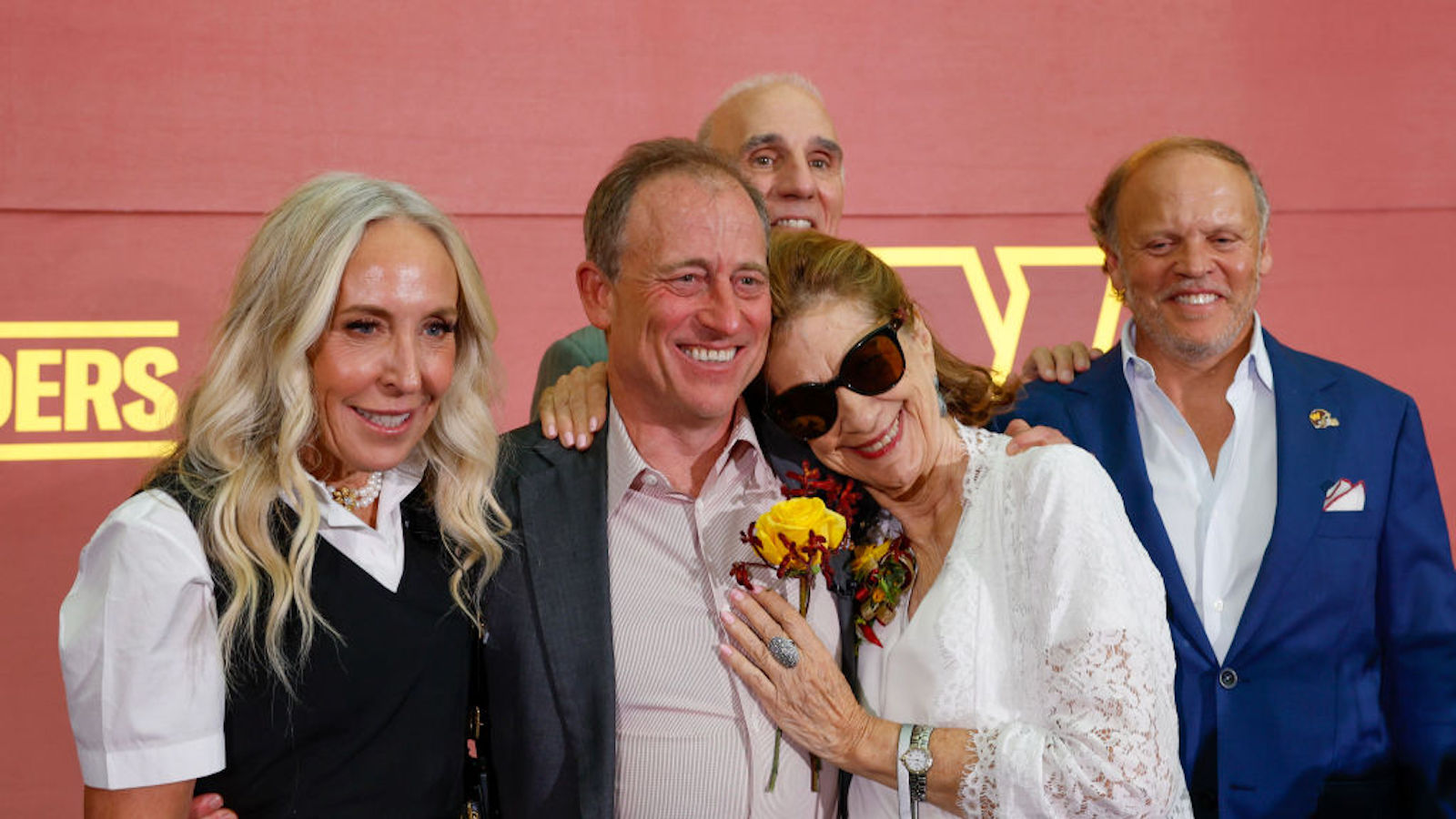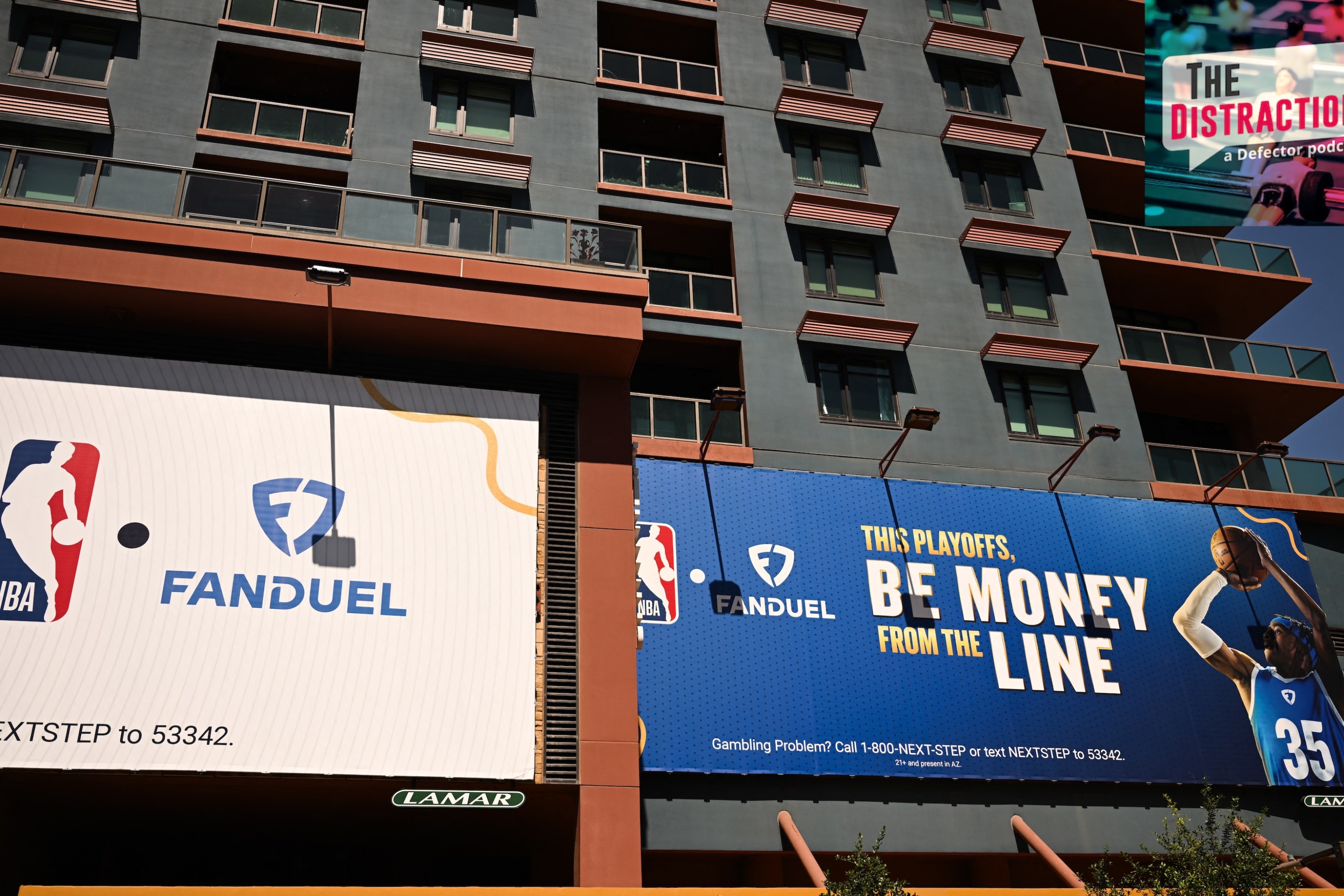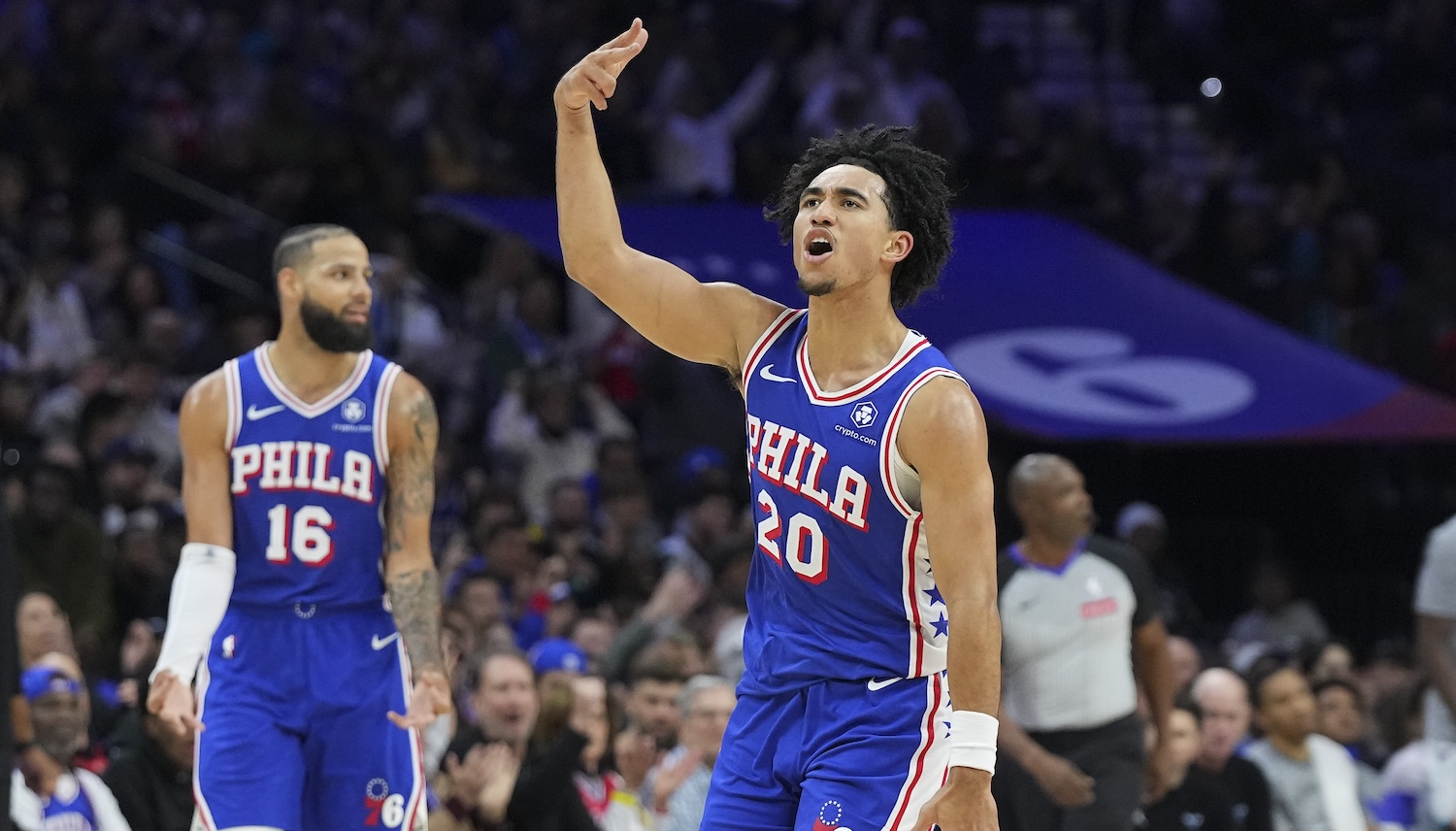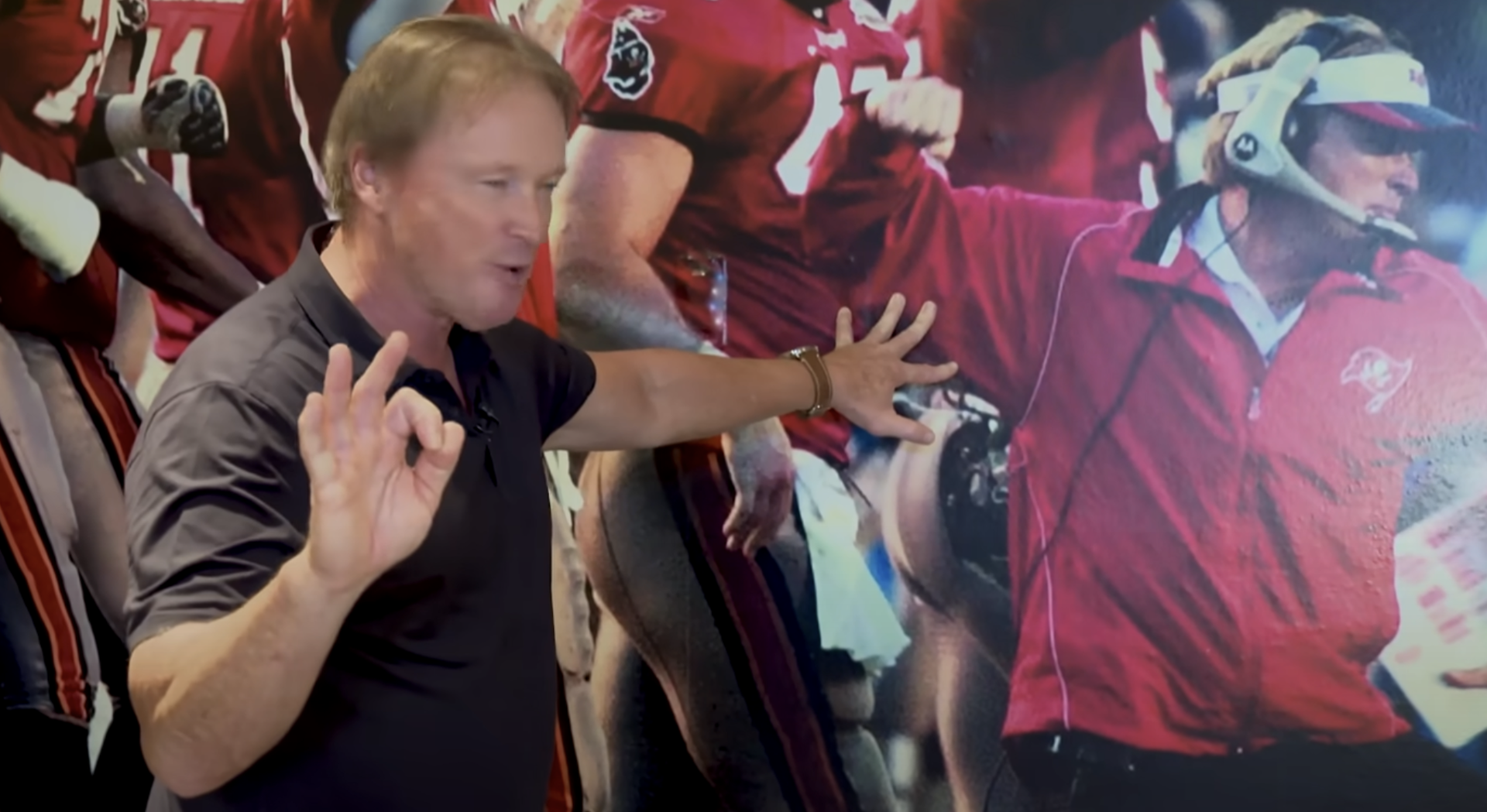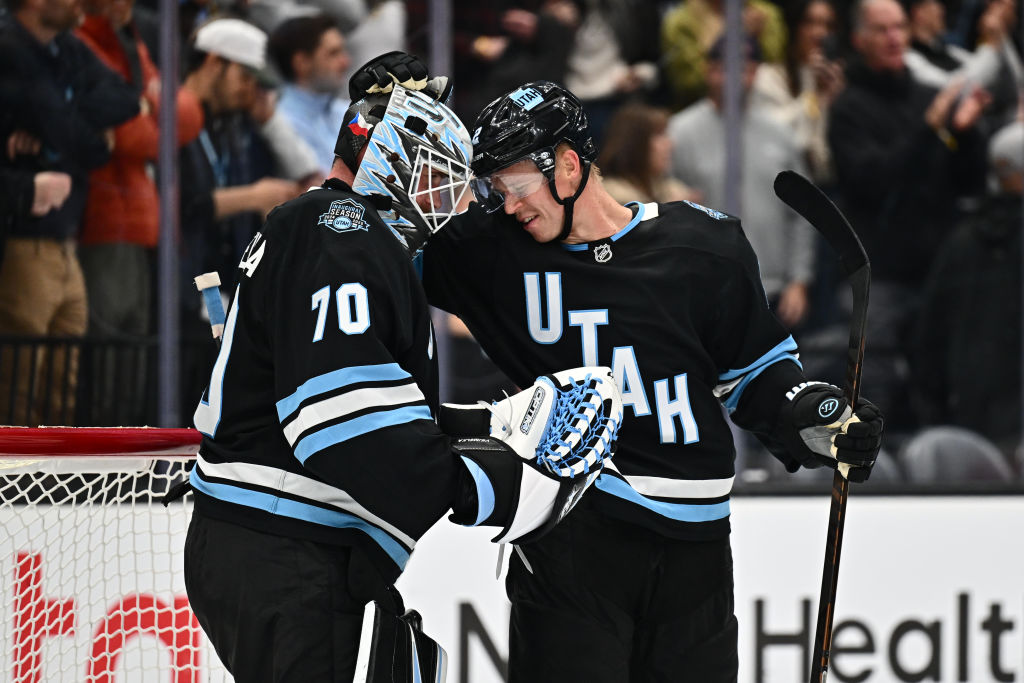A seemingly small piece of NFL news popped up in the Sports Business Journal last week. NFL commissioner Roger Goodell has appointed five team owners to a committee that is meant to "evaluate the league's conservative ownership policies." Depending on how that committee conducts itself, the NFL could be on course to becoming a much different league than it is right now.
The committee, which consists of Patriots owner Robert Kraft, Falcons owner Arthur Blank, Browns owner Jimmy Haslam, and Broncos owner Greg Penner, was convened in response to the recent sale of the Washington Commanders, which was purchased by an ownership group led by billionaire Josh Harris for $6.05 billion, a record sale for a sports franchise (the previous record sale came just a year ago, when the Walton family bought the Broncos for $4.65 billion). According to SBJ, the NFL was pleased with the sale price for the Commanders, but was not thrilled with how few bids were placed on the team and how complicated Harris's bid structure ended up being. In other words, the NFL's owners like the fact that franchise values are higher than ever, but don't like the fact that the world is running out of people who are rich enough to actually be able to afford to buy a team under the NFL's current ownership rules. The owners have found themselves in what you might call the Reaping/Sowing Conundrum.
So what's a group of 32 plutocrats who are addicted to seeing the value of their assets increase exponentially to do about this problem? Is it time for this group of committed capitalists to yield to market forces and accept that it might be time for franchise valuations to go down in order to increase demand? Don't be silly. The actual answer is obvious: The NFL just needs to let more money in the door.
The NFL's current ownership rules require that team owners be individuals rather than firms or corporate entities, which locks things like private equity firms and sovereign wealth funds out of the ownership ranks. The league's rules also limit how much debt an owner can take on in order to finance their purchase of a team, meaning that any serious bidder for an NFL team has to have a significant amount of cash on hand. These are the rules that the new committee will be looking to loosen. From SBJ:
The committee will take a serious look at every possible outcome, sources said, including following the other major pro leagues in allowing limited private equity investment in teams. However, it’s not yet clear whether that would have sufficient support, and sources agree the most likely short-term recommendations from the committee will focus on incremental changes.
More likely, the committee will endorse higher debt limits, up substantially from the current limit of $1.1 billion of debt for club acquisitions, raise the limit on 25 partners in any ownership group and to possibly lower the 30% threshold for the principal buyers. This would follow on steps taken in 2018 to eliminate cross-ownership rules and raise debt limits.
Even if the NFL drops its long-standing rule requiring all equity holders to be natural persons, that would not necessarily mean an open door to P.E. funds. It could end up focusing on entities that are, in practice, the embodiment of individuals but cannot currently buy into teams.
SBJ
What might a future look like in which NFL teams are increasingly owned by over-leveraged individuals and investment firms hungry for returns? Some answers can be found in other major sports leagues. MLB has its own debt-limit rules for incoming owners, but it has also been notoriously lax in enforcing those rules, which has given the debt-ridden owners of various small- and even large-market teams an added excuse to suppress payroll costs while also inflicting a permanently chilly free-agent market on the league. Back in 2009, the Ricketts family, one of America's richest, purchased the Chicago Cubs for just under $1 billion while taking on $450 million in debt. The Cubs won the World Series in 2016, and the Ricketts have spent just about every season since slashing payroll and crying about how they don't have enough money to keep the team competitive.
European soccer may also offer a glimpse of the NFL's future with looser ownership rules. While the sovereign wealth funds of Saudi Arabia and Qatar have been busy gobbling up many of Europe's high-value clubs, those with less prestige and value are at increased risk of becoming just another page in an investment firm's portfolio. Just this week, it was announced that Iranian billionaire Farhad Moshiri, who purchased Everton in 2016 and then spent the next seven years destroying the club's finances and saddling it with debt, has agreed to sell the team to an investment group called 777 Partners. If the sale is approved, Everton will become just one of a half-dozen soccer teams that 777 Partners has an ownership stake in. One of those teams, Genoa FC, is currently trying to sell bonds to its own fans in order to finance the construction new training ground. Josh Wander, the chairman of 777 Partners, has previously spoken to the Financial Times about his vision for sports ownership:
“The vision for this football group is that one day we’re not selling hot dogs and beers to our customers; [it’s] that we’re selling insurance or financial services or whatever,” he said. The intensity of fans’ engagement with their clubs meant “they want to be monetised”, he added.
Financial Times
Is a future in which the NFL's ownership ranks might include over-leveraged billionaires who can't afford to keep their teams competitive, sports-washing wealth funds, and investment firms trying to sell team-branded life insurance policies to its fans one that would be good for the health of the league? The answer to that question depends entirely on how one might define what's considered "healthy" for the NFL. For fans, to whom the teams they root for are not just entertainment products but something like civic institutions, the answer is probably "no." But for the owners, to whom the teams they steward are assets first and foremost, the answer might be, "The line must go up."
The five-person committee will make its recommendations to the rest of the league at the annual owners meeting in March, and even if the league ends up loosening its ownership rules, the effects will arrive slowly. There will be effects, though, because the ceaseless pursuit of the kind of exponential growth that can make a mediocre franchise like the Washington Commanders worth $6.05 billion brings consequences. Maybe one day the Cowboys will win another Super Bowl, and a prince who took control of the team in 2034 after it was purchased by the Saudi Public Investment Fund for $15 billion will get to raise the Lombardi Trophy at midfield. An angry Bills fan, watching at home, will log into his Bills Mafia checking account to see if he has enough money to buy another Buffalo Bond to help the team pay for a better offensive coordinator.
